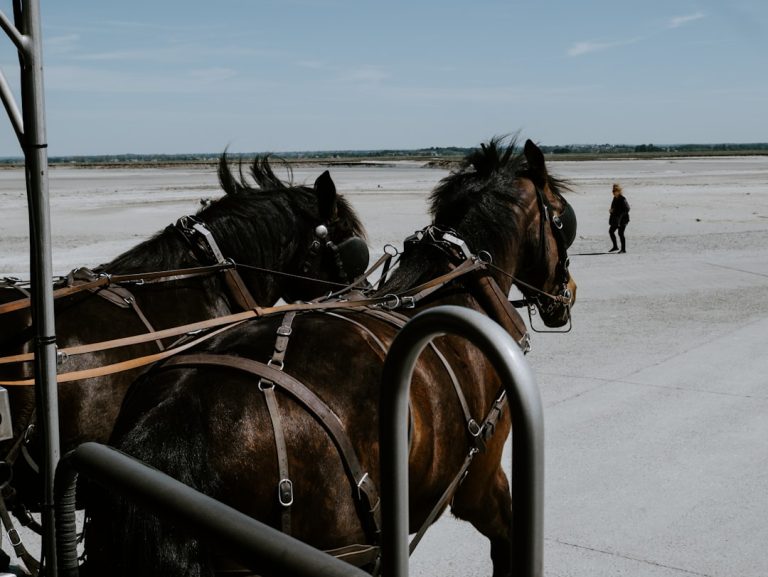
Initiating a conversation can often feel like navigating a minefield, especially in unfamiliar social settings. The art of small talk serves as a crucial tool in breaking the ice, allowing individuals to ease into deeper discussions. Small talk typically revolves around light, non-controversial topics such as the weather, recent events, or shared environments.
For instance, commenting on the ambiance of a gathering or the quality of a venue can create an immediate connection. “Isn’t this place charming?” or “I love the music they’re playing here,” can serve as effective openers that invite further dialogue. Moreover, small talk is not merely a filler; it lays the groundwork for more meaningful conversations.
It allows individuals to gauge each other’s comfort levels and interests. Engaging in light banter about everyday occurrences can reveal shared experiences or mutual acquaintances, which can then be explored further. For example, if someone mentions their commute, it might lead to a discussion about favorite routes or public transport experiences.
This initial exchange can transform into a more profound conversation about life in the city, personal anecdotes, or even philosophical musings about urban living.
Key Takeaways
- Small talk is important for breaking the ice and creating a comfortable atmosphere for conversation.
- Finding common ground through hobbies and interests can lead to more engaging and enjoyable discussions.
- Sharing travel experiences can create a sense of adventure and excitement in conversation.
- Exploring culinary preferences can lead to discovering new foods and creating a shared experience.
- Discussing books, movies, and music can provide insight into each other’s cultural interests and preferences.
Hobbies and Interests: Finding Common Ground
Once the ice has been broken, delving into hobbies and interests can significantly enhance the connection between individuals. Discussing personal passions not only reveals character but also opens avenues for shared experiences. For instance, if one person expresses a love for painting, it may prompt another to share their own artistic endeavors or appreciation for art.
This exchange can lead to discussions about favorite artists, art styles, or even local galleries worth visiting. Such conversations often foster a sense of camaraderie as individuals bond over their shared interests. Additionally, hobbies can serve as a gateway to exploring deeper values and beliefs.
For example, someone who enjoys hiking may have a profound appreciation for nature and environmental conservation. This could lead to discussions about sustainability practices or favorite outdoor destinations. Similarly, those who engage in team sports might share insights about teamwork and collaboration, which can segue into discussions about personal growth and life lessons learned through these activities.
By exploring hobbies and interests, individuals not only find common ground but also create a richer tapestry of understanding and connection.
Travel and Adventure: Sharing Experiences

Travel often serves as a catalyst for engaging conversations, as it encompasses a wealth of experiences and stories that can captivate listeners. Sharing travel experiences can evoke vivid imagery and emotions, allowing individuals to transport themselves to different places and cultures through storytelling. For instance, recounting a trip to Japan might involve discussing the beauty of cherry blossoms in bloom or the intricacies of traditional tea ceremonies.
Such narratives not only entertain but also provide insights into personal perspectives and cultural appreciation. Moreover, travel discussions can lead to exchanges about future aspirations and bucket-list destinations. When one person shares their dream of exploring the Amazon rainforest, it may inspire another to reveal their own travel ambitions, whether it’s trekking through the Himalayas or indulging in culinary adventures in Italy.
These conversations often highlight individual values—such as adventure versus relaxation—and can lead to deeper discussions about what travel means to each person. Ultimately, sharing travel experiences fosters a sense of connection through the universal desire for exploration and discovery.
Food and Dining: Exploring Culinary Preferences
| Category | Preference |
|---|---|
| Cuisine | Italian |
| Favorite Dish | Pizza |
| Preferred Drink | Red Wine |
| Dining Frequency | Twice a week |
Food is an integral part of human culture and often serves as a delightful topic for conversation. Discussing culinary preferences can reveal much about an individual’s background, tastes, and even lifestyle choices. For instance, someone who enjoys cooking might share their favorite recipes or cooking techniques, while another might discuss their experiences dining at various restaurants around the world.
This exchange can lead to recommendations for local eateries or even plans to try cooking a new dish together. Furthermore, food discussions can delve into cultural significance and personal memories associated with certain dishes. A conversation about comfort food might evoke stories of family gatherings centered around traditional meals or childhood memories tied to specific flavors.
For example, someone might reminisce about their grandmother’s secret recipe for lasagna, sparking a discussion about family traditions and the role of food in shaping relationships. By exploring culinary preferences, individuals not only share their tastes but also connect on a deeper emotional level through shared experiences and memories.
Culture and Entertainment: Discussing Books, Movies, and Music
Cultural interests often serve as a rich vein for conversation, providing insights into individual personalities and preferences. Discussing books, movies, or music can reveal much about one’s tastes and values. For instance, sharing favorite authors or genres can lead to discussions about literary themes that resonate with individuals on a personal level.
A conversation about a thought-provoking novel might inspire another person to share their own reading list or discuss how literature has influenced their worldview. Similarly, movies and music can evoke strong emotions and memories, making them excellent topics for deeper discussions. A film that sparked joy or contemplation can lead to conversations about life lessons learned from cinema or favorite soundtracks that evoke nostalgia.
For example, discussing a classic film like “The Shawshank Redemption” might prompt reflections on hope and resilience in challenging circumstances. Music preferences can also reveal cultural backgrounds and personal stories; sharing favorite bands or concerts attended can create an atmosphere of shared enthusiasm and connection.
Education and Career: Sharing Goals and Aspirations

Conversations about education and career paths often provide valuable insights into an individual’s ambitions and motivations. Discussing academic backgrounds can reveal shared experiences or challenges faced during formative years. For instance, someone who pursued a degree in environmental science may find common ground with another who is passionate about sustainability initiatives in their workplace.
These discussions not only highlight professional aspirations but also underscore the importance of education in shaping one’s identity. Moreover, career conversations can lead to discussions about personal growth and future goals. Sharing aspirations for career advancement or shifts in professional focus can foster an environment of support and encouragement.
For example, someone contemplating a career change might find inspiration in another’s journey toward pursuing their passion. These exchanges often highlight the importance of mentorship and networking in achieving professional goals, creating opportunities for collaboration and mutual support.
Current Events and News: Engaging in Thoughtful Discussions
Engaging in conversations about current events can be both enlightening and challenging, as it often requires navigating differing opinions and perspectives.
For instance, conversations surrounding climate change may prompt discussions about personal actions taken toward sustainability or opinions on governmental policies aimed at addressing environmental concerns.
Such dialogues encourage critical thinking and foster an understanding of diverse perspectives. Moreover, discussing current events can lead to deeper explorations of societal values and ethics. Conversations about social justice movements may inspire individuals to share personal experiences related to advocacy or community involvement.
This exchange not only broadens understanding but also highlights the importance of civic engagement in shaping societal change. Thoughtful discussions about current events create opportunities for learning from one another while fostering empathy and understanding across differing viewpoints.
Personal Stories and Experiences: Building Trust and Connection
Sharing personal stories is perhaps one of the most powerful ways to build trust and connection between individuals. When people open up about their experiences—whether they are triumphs or challenges—it creates an atmosphere of vulnerability that fosters deeper relationships. For instance, recounting a significant life event such as overcoming adversity can resonate with others who have faced similar struggles, creating bonds based on shared experiences.
Additionally, personal anecdotes often serve as catalysts for empathy and understanding. When someone shares a story about their journey through grief or loss, it invites others to reflect on their own experiences with vulnerability and resilience. These exchanges not only deepen connections but also create a sense of community among individuals who may have otherwise remained strangers.
By sharing personal stories, individuals cultivate an environment where trust flourishes, paving the way for more meaningful relationships built on authenticity and mutual understanding.
If you’re looking to improve your English conversation skills and make new friends, you may want to check out American English Conversations Lesson 9. This article provides valuable tips and strategies for engaging in meaningful conversations with others. By practicing these conversation topics, you’ll be better equipped to connect with others and build lasting friendships.
FAQs
What are some conversation topics for English learners to make new friends?
Some conversation topics for English learners to make new friends include hobbies and interests, travel experiences, favorite books or movies, cultural differences, and current events.
Why are conversation topics important for English learners?
Conversation topics are important for English learners because they provide opportunities to practice speaking and listening skills, expand vocabulary, and build confidence in using the English language.
How can English learners initiate conversations with new friends?
English learners can initiate conversations with new friends by asking open-ended questions, sharing personal experiences, and expressing genuine interest in the other person’s thoughts and opinions.
What are some tips for English learners to keep conversations going with new friends?
Some tips for English learners to keep conversations going with new friends include active listening, asking follow-up questions, sharing relevant experiences, and being open to different perspectives.
How can English learners improve their conversational skills?
English learners can improve their conversational skills by practicing speaking with native speakers, participating in language exchange programs, watching English-language media, and using language learning apps or resources.






